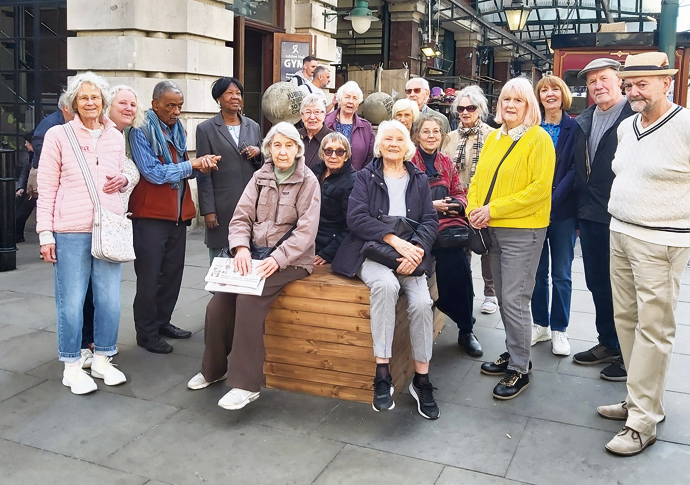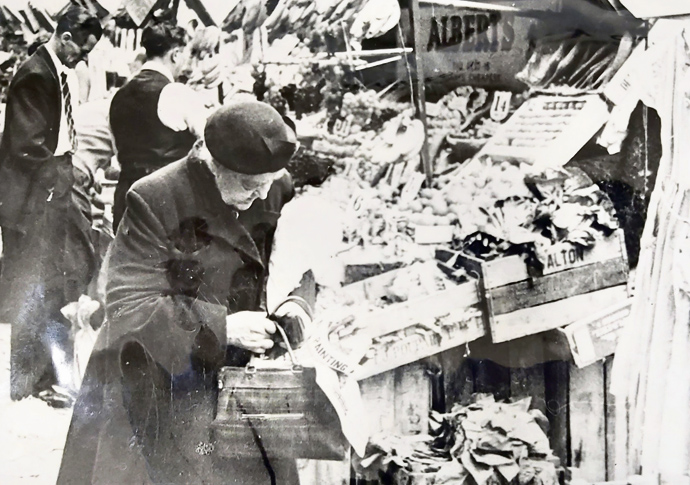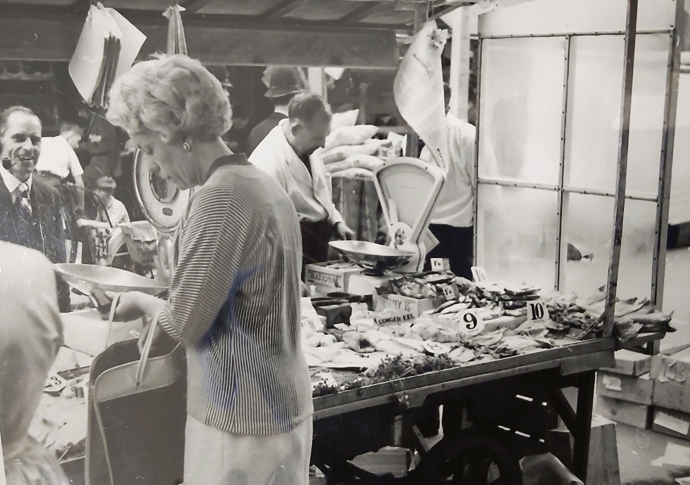Historians go back to when market was ‘street of poor’
Exmouth Market is the subject of a new book by St Luke’s Community History Group
Friday, 18th July 2025 — By Daisy Clague

St Luke’s Community History Group
STRINGS of fairy lights and al fresco tables give Clerkenwell’s Exmouth Market a European ambience that draws surrounding office workers like moths to a flame.
But not too long ago the street was a bustling market true to its name, where people living nearby shopped for their daily meats, greens and breads or browsed for bed linens, radios and even corsets.
Exmouth Market is the subject of a new book by St Luke’s Community History Group – 30 or so local residents, many in their 80s and 90s, who have lived in EC1 all their lives.
Group organiser Polly Mann told the Tribune: “What is really important is that the project has brought together a group of people who didn’t really want to engage with older people’s services. They’re not the bingo and coffee morning people. But they have been hanging out for the last 20 years, and this is the result of their time together.”

Images from their Exmouth Market book

With archival research, participants’ own memories and plenty of pictures, the group’s new book traces the history of one street, finding that it was a shopping hub from as early as 1819.
In 1906 novelist Geraldine Mitt described Exmouth Market as “one of the market streets of the poor” – it is quite the opposite today.
Ms Mann added: “It used to be a place where residents would to do all of their shopping, but it doesn’t look like that anymore. Shopping and working close to home was the norm and that shaped the communities.
“It’s changed hugely – we wouldn’t know very much about the community that’s there now. The community of people who work from cafés on their laptops is a community but it’s very different from what our members remember.”
She emphasised the wellbeing benefits of the community history group for members. Many live in social housing and might otherwise be isolated, because their families’ younger generations have been forced out of the area by rising prices.
Over 20 years, participants have taken up oral history training or gone on trips together.
The group is a testament to their “resilience” and “commitment to their community”, Ms Mann said.